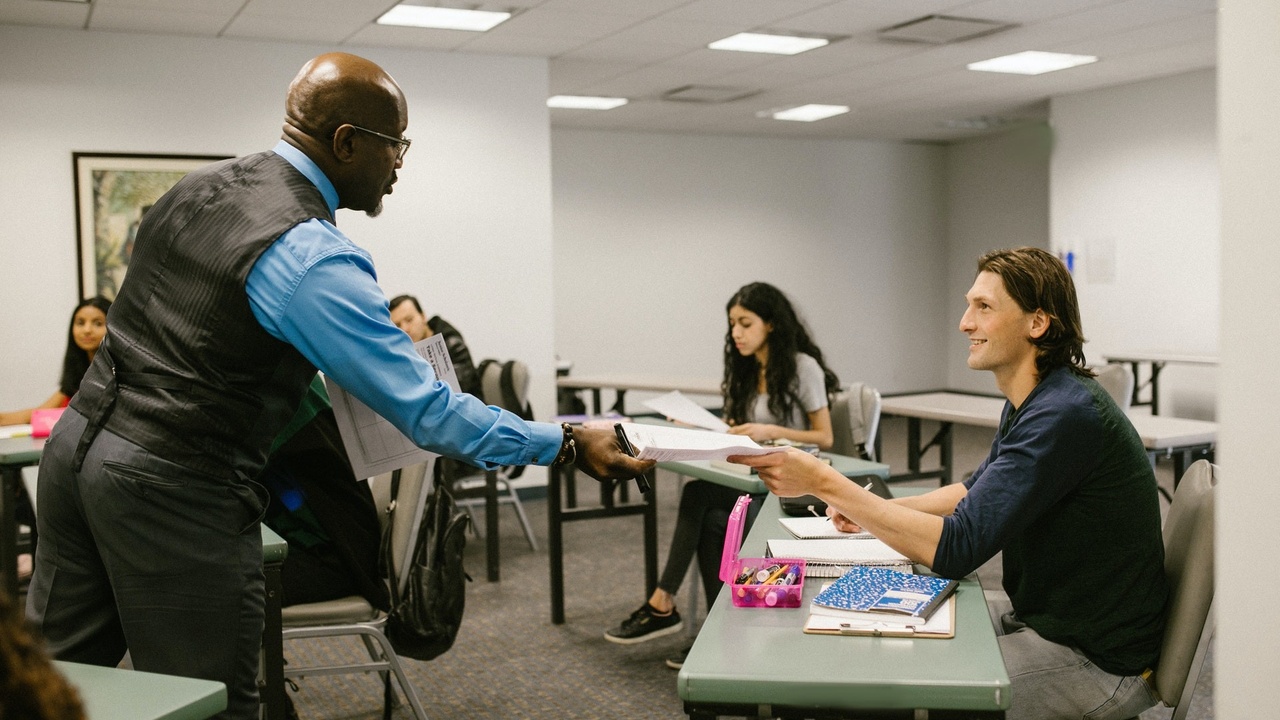Consider A Midlife Career Change to Teaching
May 10, 2010
by Jeremy Koch
photo by Rodnae
The rewards of teaching are enormous, and so is the need for excellent teachers. In the next decade, there will be 1.5 million teaching vacancies in the United States, according to the Woodrow Wilson National Fellowship Foundation. Millions of baby boomers are retiring from the profession, and a staggering 50 percent of new teachers leave the field within their first five years -- the equivalent of nearly a thousand teachers, both novice and seasoned, calling it quits every day. All the vacancies won't be filled, because of funding issues. Still, it will be a major challenge to recruit and retain enough educators, never mind top talent.
In fact, it already is a challenge. We face a stunning shortage of teachers for elementary school, math, science (especially physics and chemistry), special education, bilingual and English as a Second Language, vocational subjects, and foreign languages-particularly in disadvantaged middle and high schools in urban areas. However, this crisis also is creating opportunities for those seeking second-or "encore"-careers that combine socially meaningful work with a salary.
Former scientists, engineers, accountants, architects, and high-tech and finance professionals are becoming classroom teachers. And they're not the only ones. In a recent Civic Ventures/MetLife Foundation study, teaching was the most popular field for college-educated 44- to 70-year-olds who had changed careers, while 50 percent of people who haven't yet changed careers reported they could envision a future in education, health care, government or nonprofit work.
Teaching can be appealing for people ready to retire from a first career or who've lost their job and still need a steady income and health insurance, those who find retirement or their regular routine dreary -- and, of course, those who like to be around children. Making a difference in a child's life or, as Bernie Alidor, a Florida inner-city kindergarten teacher, puts it, "being the only male role model most of my students have" -- can be enormously gratifying. So can imparting knowledge, feeling valued, and forming close relationships between generations. "I'm madly in love with this profession," says Alidor, who served in the Navy on the flight deck of a Navy ship launching aircraft off ship decks. "If I could afford it, I'd tell them to keep their paycheck!"
It's that paycheck, though, that deters many would-be second-career teachers. The average annual salary among all U.S. teachers in 2004-05 (the latest figures) was $31,753; for teachers in public schools only, the average was $47,602. (Teachers can boost their earnings by being a mentor to colleagues, or teaching summer school or at an after-school program. Also, for many, the attractive benefits can offset the low pay. Thanks to union collective-bargaining agreements, many teachers pay far less to be enrolled in generous medical and dental plans than employees in the private sector.)
Needless to say, going into education may mean a hefty pay cut for anyone coming from the world of business. An additional barrier: Earning a teaching degree can take years and as much as $15,000 -- although innovative teaching initiatives in some places are speeding up the certification process. Certificate programs, for instance, cost a few thousand dollars and enable participants to begin teaching in a matter of months, rather than years, typically in high-needs schools; some large companies and even the federal and state government and local school districts often help pay the tuition.
Is teaching for you?
You need to do your research to find out. Sorting through all the information and options can seem overwhelming; teaching requirements vary from state to state, and sometimes from one school district to another. Notes Tom Carroll, president of the National Commission on Teaching and America's Future: "There is nothing that says, ‘If I'm in my 50s and I want to leave my job and become a teacher, here's the program and how to do it.' The reality is that each person will have to find his or her own pathway into teaching."
WhatsNext.com recently published a detailed, 40-page guide on what's involved in becoming a teacher in midlife. To find out more about this useful guide, check out How to Become a Teacher.





